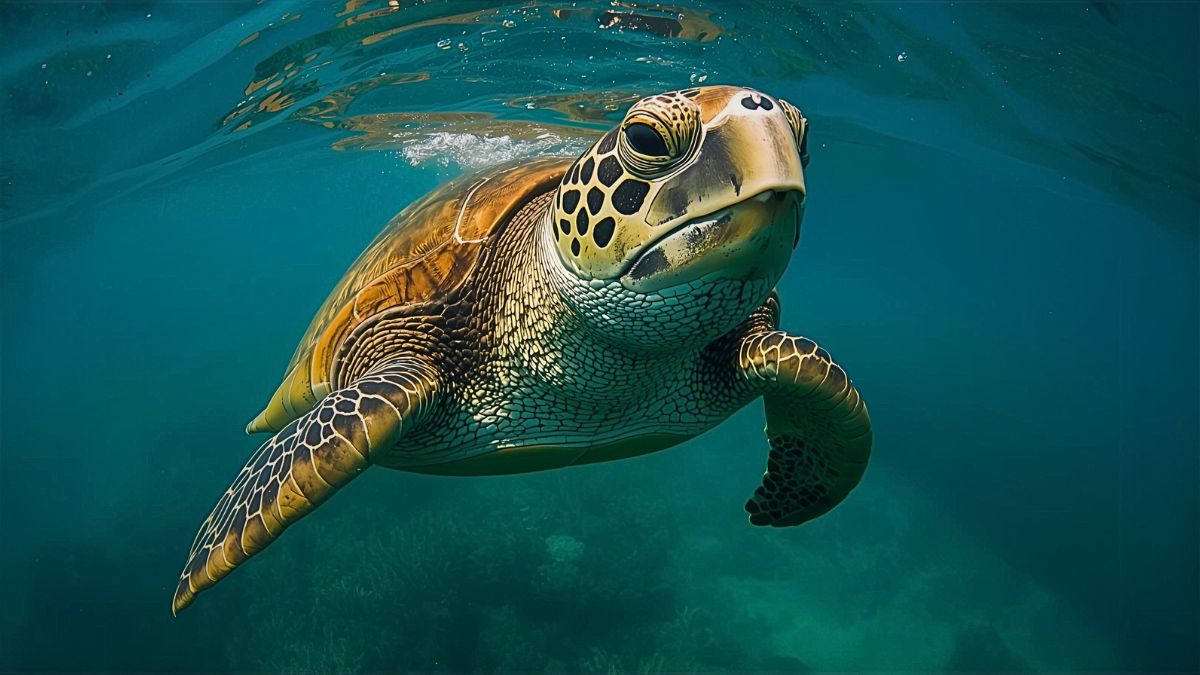I hear it all the time from nervous students standing at the edge of the pool: “I’m just not sure I can do this.” They stare at the water with mixed excitement and doubt, wondering if learning to scuba dive will be too difficult, too technical, or too scary.
After teaching hundreds of people to dive in Costa Rica’s warm waters, I can tell you this with complete confidence: learning to scuba dive is far easier than most people imagine.
The fear of difficulty almost always looms larger than the actual challenge.
Is Scuba Diving Hard to Learn?
No, scuba diving is not hard to learn.
Most people with basic swimming skills and reasonable health can become certified divers within 3 to 4 days.
The training builds your skills gradually. You start with theory, move to shallow pool practice, and finish with guided open water dives.
Each step prepares you for the next, and you never advance until you’re ready.
Did you know? Over 6 million people worldwide are certified divers, with hundreds of thousands earning their certification each year. The majority complete training without any major difficulties.
Why Do Most People Find It Easier Than Expected?
Think about when you learned to drive.
At first, coordinating the pedals, steering wheel, mirrors, and road signs felt completely overwhelming. Within a few weeks, everything became automatic.
Scuba diving follows the same pattern.
The skills themselves are straightforward. Breathing through a regulator, clearing your mask, and controlling your depth are simple actions.
What makes them feel difficult at first is that you’re doing them in an unfamiliar environment.
Here’s what surprises most of my students: children as young as 10 regularly earn scuba certification.
People in their 70s complete courses successfully. Individuals with physical disabilities dive with adapted techniques.
If scuba diving required exceptional abilities, none of this would be possible.
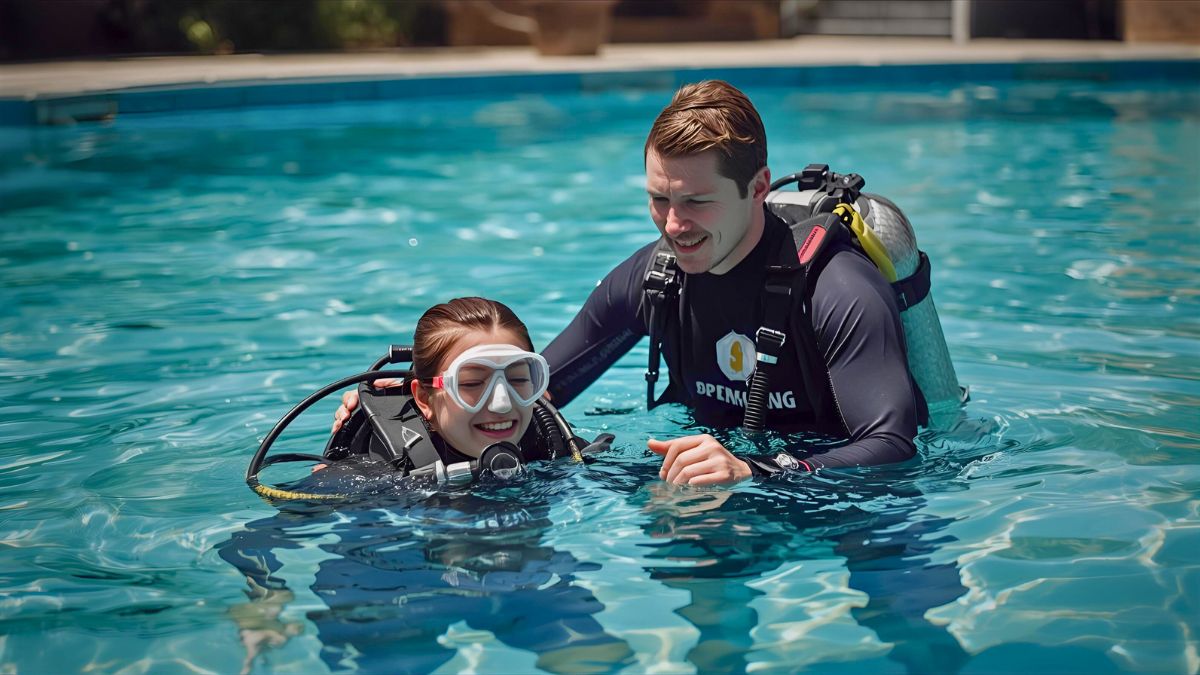
What Makes Learning to Scuba Dive Manageable
How Do Modern Training Methods Help?
Most of your theory work happens through e-learning platforms.
You study at your own pace from home, pausing and reviewing sections whenever needed. This removes the pressure of keeping up in a classroom.
The video-based lessons show you exactly what each skill looks like before you attempt it.
By the time you reach the pool, you’ve already watched your instructor demonstrate mask clearing or buoyancy control multiple times.
In Costa Rica, we typically work with small groups of 2 to 4 students per instructor. This means you get plenty of individual attention.
If you need extra time on a particular skill, your instructor can focus on you without holding back a large class.
Do You Need to Be Athletic?
No, you don’t need to be in peak physical condition.
The basic requirements are modest. For PADI certification, you need to swim 200 meters continuously or 300 meters with fins, mask, and snorkel.
You also need to tread water or float for 10 minutes.
Notice what’s not required: speed.
You can complete the swim test using any stroke at any pace. I’ve watched students doggy paddle their way through successfully.
The goal is demonstrating comfort in water, not winning races.
Once you’re diving, the physical demands decrease even further. Your buoyancy control device supports you in the water.
Your fins handle most of the propulsion. Underwater, you move slowly and deliberately, never with athletic intensity.
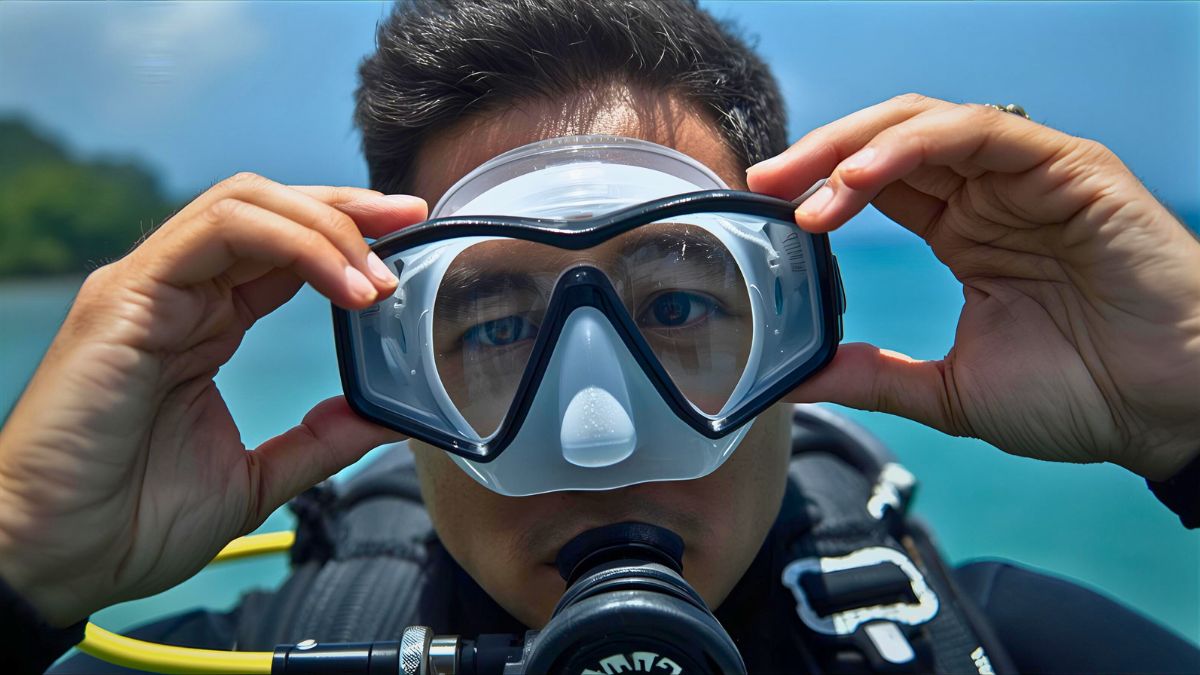
Understanding the Scuba Certification Process
How Long Does It Take to Get Certified?
The standard Open Water Diver certification takes 3 to 4 days when done during a vacation or intensive course.
This assumes you’ve already finished your e-learning theory work before arriving.
What Happens Each Day?
Day 1: Pool confined water training (morning and afternoon sessions). You’ll practice basic skills like mask clearing, regulator recovery, and buoyancy control.
Day 2: More advanced pool skills and preparation for open water. By the end of this day, you should feel confident with all the fundamental techniques.
Day 3: First two open water dives. You’ll perform the same skills you practiced in the pool, but now in the ocean with real marine life.
Day 4: Final two open water dives. These are more relaxed, with less emphasis on skill demonstration and more focus on enjoying the experience.
What Will You Actually Learn?
The certification course covers three main areas: knowledge, confined water skills, and open water experience.
Knowledge Development
This is the theory portion.
You’ll learn about dive physics, dive planning, equipment function, and safety procedures. The material is straightforward.
If you passed high school science classes, you can handle dive theory.
Confined Water Training
This happens in a pool or calm, shallow ocean area.
You’ll learn to assemble and check your equipment, practice entering and exiting the water, and master essential underwater skills.
Key skills include:
- Breathing comfortably through your regulator
- Clearing water from your mask while submerged
- Recovering your regulator if it comes out of your mouth
- Achieving neutral buoyancy
- Performing a controlled emergency swimming ascent
Each skill is demonstrated by your instructor, then practiced repeatedly until you can perform it confidently.
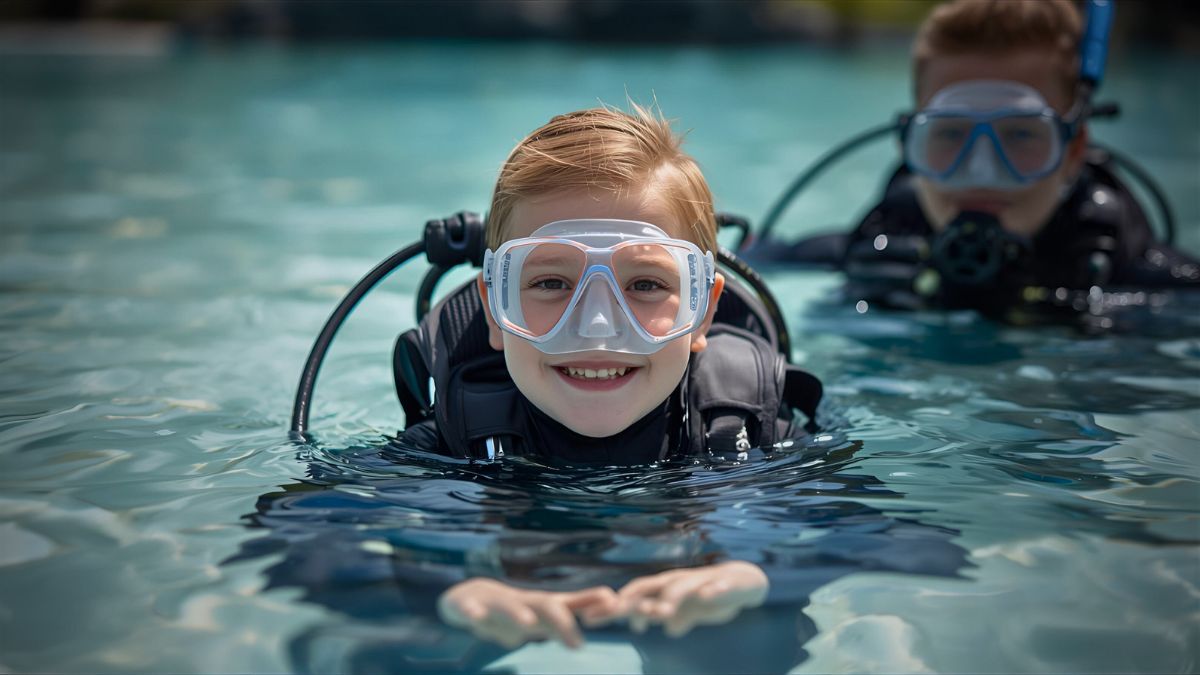
Open Water Dives
Your certification requires four open water dives, each lasting 20 to 40 minutes.
During these dives, you’ll demonstrate the skills you learned in the pool, but now in a real diving environment.
The first couple of dives feel more like tests, though relaxed ones. By the third and fourth dives, the atmosphere becomes more exploratory.
You’re diving to enjoy the reef, observe fish, and experience why people fall in love with this activity.
Common Challenges Beginners Face
How Hard Is Breathing Underwater?
The single strangest aspect of scuba diving is breathing underwater.
Your brain knows this shouldn’t be possible, so your first breaths through a regulator feel deeply unnatural.
I tell my students to start by breathing from the regulator while standing in chest-deep water with their face above the surface.
Get comfortable with the sound and feel of it. Then dip your face in for just seconds.
Lift your head whenever you want.
Within 10 or 15 minutes, the strangeness disappears. Your brain accepts that yes, this device provides air reliably.
The initial discomfort passes quickly for nearly everyone.
What Is Equalizing and Why Does It Matter?
As you descend, water pressure increases.
This pressure pushes against your eardrums, creating discomfort or pain if not addressed.
Equalization is the technique for balancing this pressure.
How Do You Equalize?
The most common method is pinching your nose through your mask and gently blowing.
This forces air into your Eustachian tubes, equalizing the pressure on both sides of your eardrums.
For most people, equalization is easy. You probably already do it unconsciously when driving down a mountain or flying in an airplane.
Some people equalize simply by swallowing or wiggling their jaw.
A small percentage of students struggle with equalization. If you’re one of them, the solution is descending more slowly and equalizing more frequently.
Don’t wait until your ears hurt. Equalize every meter or two as you go down.
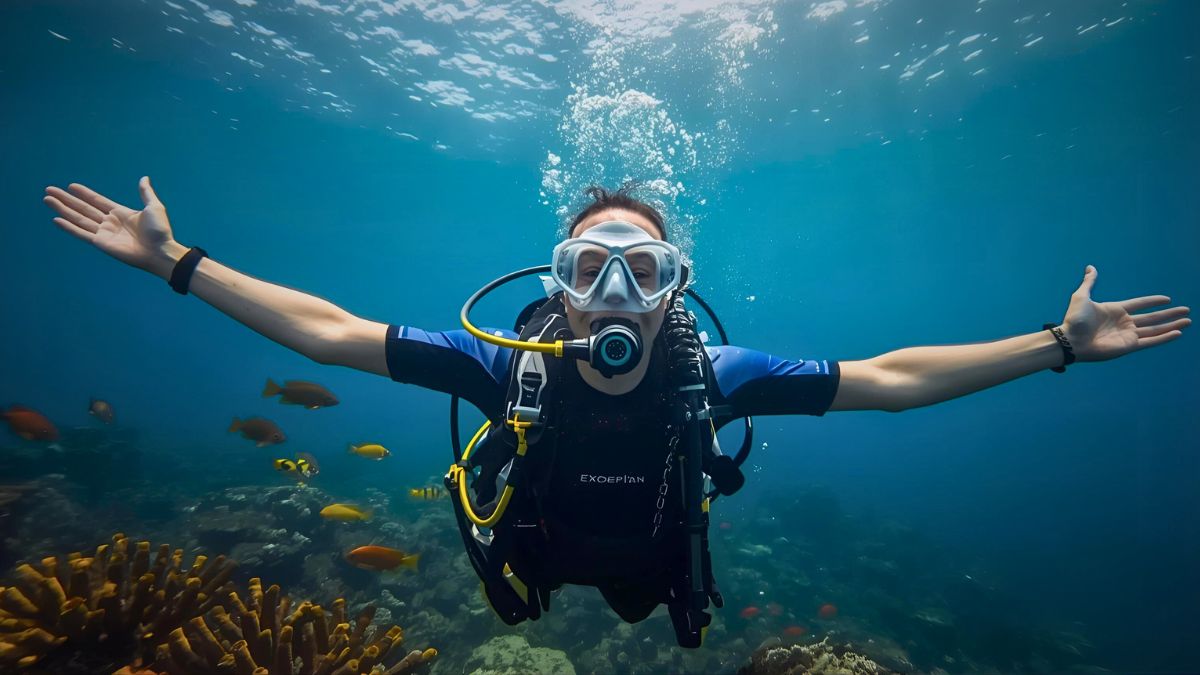
Is Buoyancy Control Difficult?
Buoyancy control is the skill that separates comfortable divers from struggling ones.
It’s also the skill that takes the longest to truly master.
Neutral buoyancy means you neither sink nor float. You hover effortlessly in the water column.
Achieving this requires the right amount of weight on your belt, the right amount of air in your buoyancy control device (BCD), and the right breathing pattern.
During your certification, you’ll get the basics of buoyancy. You’ll learn to add air to your BCD to rise, release air to descend, and fine-tune your position with breath control.
But here’s the honest truth: becoming really good at buoyancy takes 15 to 20 dives beyond your certification.
Don’t let this discourage you. You’ll be adequate at buoyancy by the end of your course.
Adequate means you can control your depth, avoid crashing into the reef, and ascend safely.
What About Clearing Your Mask?
At some point during every dive, a small amount of water enters your mask.
Maybe you smile at a turtle and break the seal. Maybe you bump your mask on something.
Mask clearing is the skill that lets you remove this water without surfacing.
How Do You Clear a Mask?
The technique is straightforward: look up slightly, press the top of your mask against your forehead, and exhale through your nose.
The air forces the water out the bottom.
Straightforward in concept, but uncomfortable at first. Water up your nose triggers an automatic panic response.
Your brain tells you to surface immediately.
During pool training, we practice mask clearing repeatedly. We start by clearing just a small amount of water.
Then we progress to completely flooding your mask and clearing it.
By the 10th or 15th repetition, your anxiety drops dramatically. You realize that water in your mask is a minor annoyance, not a crisis.
Fun fact: Studies show that people who acknowledge their nervousness and communicate it to their instructor have higher certification success rates than those who try to hide their fear.
How Do You Manage Fear and Anxiety?
Feeling nervous before your first dive is completely normal.
Common fears include claustrophobia, fear of the unknown, fear of equipment failure, fear of marine life, and fear of panic itself.
The certification process is designed to address these fears systematically.
You learn what to do if equipment fails. You practice emergency procedures. You develop trust in your training and equipment.
In Costa Rica, I’ve found that the warm, clear water helps tremendously with anxiety.
When you can see 20 to 30 meters in every direction, the ocean feels less threatening.
If you experience significant anxiety, tell your instructor before getting in the water.
A good instructor will adjust the pace, offer extra reassurance, and never push you beyond your comfort zone.
Which Certification Agency Should You Choose?
Does PADI vs SSI Really Matter?
New divers often agonize over which certification agency to choose.
Let me simplify this decision: it really doesn’t matter much.
PADI (Professional Association of Diving Instructors) is the largest agency globally. SSI (Scuba Schools International) is the second largest.
NAUI (National Association of Underwater Instructors) is popular in North America.
All three produce competent entry-level divers.
The training standards are extremely similar across agencies. All require the same core skills.
All certify you to dive to 18 meters (60 feet) after the Open Water course.
What matters far more than agency is instructor quality.
A patient, experienced instructor from any agency will provide better training than a rushed, inexperienced instructor from the “best” agency.

Physical and Health Requirements
Do You Need to Know How to Swim?
Yes, you need basic swimming ability, but the requirements are less demanding than most people assume.
For PADI Open Water certification, you must demonstrate one of the following:
- Swim 200 meters continuously using any stroke
- Swim 300 meters continuously using mask, fins, and snorkel
You also need to tread water or float for 10 minutes without support.
Notice what’s missing: time limits, specific strokes, or athletic performance.
The swim test assesses comfort in water, not swimming prowess.
What Medical Conditions Prevent Diving?
Before starting any certification course, you’ll complete a medical questionnaire.
This form asks about conditions including heart problems, respiratory conditions like asthma, ear or sinus problems, seizure disorders, and diabetes.
If you answer yes to any question, you’ll need clearance from a physician familiar with dive medicine before starting the course.
Some conditions are absolute contraindications to diving. Others simply require medical evaluation and possibly medication management.
Never lie on the medical form. Your life may depend on honest disclosure.
If you have a medical condition that makes diving unsafe, your physician will tell you.
The Investment: Time, Money, and Commitment
How Much Does Scuba Certification Cost?
Open Water Diver certification in Costa Rica typically costs between $500 and $700 for a complete course.
This typically includes:
- E-learning materials and online coursework access
- All pool or confined water training sessions
- Four open water certification dives
- Equipment rental during training
- Certification processing fee
- Digital certification card
Some dive centers charge separately for course materials, certification fees, or equipment rental.
Always ask for the complete, all-inclusive price before booking.
Do You Need to Buy Equipment?
No, you don’t need to buy equipment for your certification course.
Rental gear is always included or available.
That said, many divers choose to purchase certain items early on. The most common first purchases are a properly fitting mask, snorkel, and fins.
These items cost $150 to $300 total for decent quality gear.
The expensive items like BCD, regulator, and dive computer are usually rented until you’re sure diving will be a regular hobby.
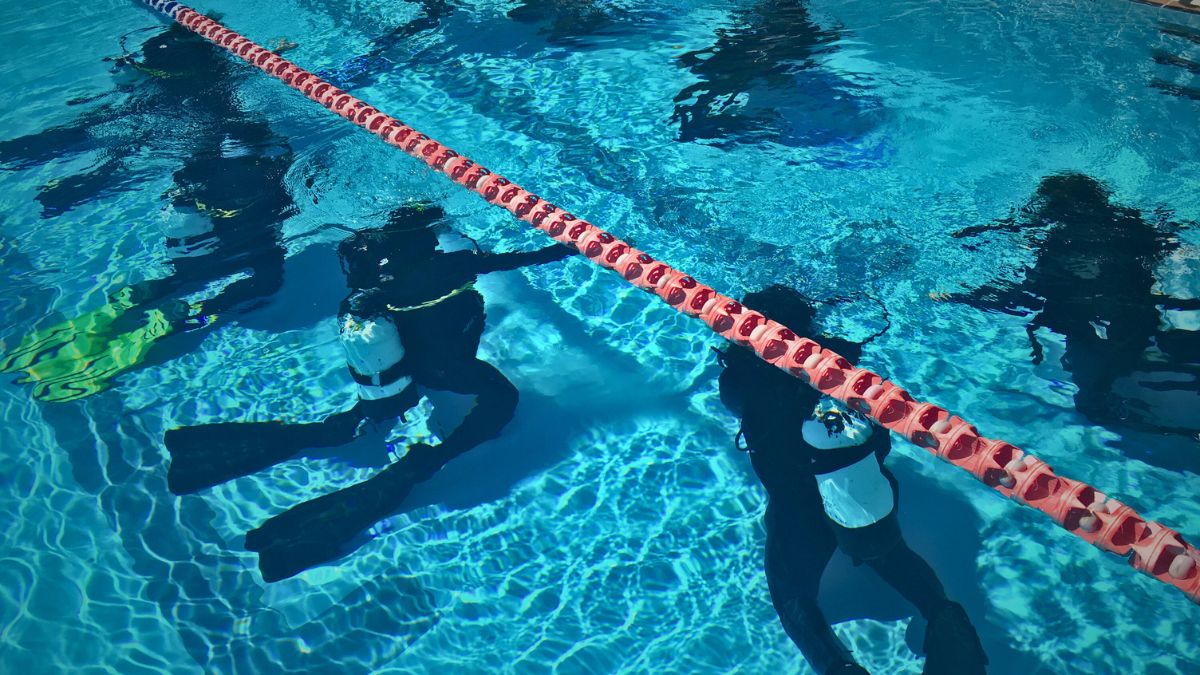
Why Costa Rica Is Ideal for Learning
What Makes Costa Rica Perfect for Beginners?
Not all diving destinations are equally good for learning.
Costa Rica offers several advantages that make certification easier and more enjoyable.
Is the Water Temperature Important?
Water temperature matters more than most people realize.
Our Pacific coast waters average 26 to 29 degrees Celsius year-round. You’ll wear a thin 3mm wetsuit or sometimes just a rash guard.
There’s no shivering, no thick neoprene restricting your movement, and no cold shock that triggers anxiety.
How Good Is the Visibility?
Visibility at beginner training sites typically ranges from 12 to 25 meters.
When you can see clearly in all directions, the underwater environment feels less intimidating.
You can spot your instructor easily. You can watch marine life approach from a distance rather than appearing suddenly beside you.
What About Marine Life?
The marine life is abundant and non-threatening.
Colorful fish, sea turtles, rays, and occasionally dolphins create excitement without danger.
Students leave their certification dives with amazing stories and photos, which reinforces their new passion for diving.
Why Choose Small Dive Operations?
Costa Rica’s diving community tends toward small, personally run operations rather than massive commercial enterprises.
This means more personalized attention during training.
Many instructors here are multilingual, speaking English, Spanish, and sometimes other languages.
This helps international students feel comfortable asking questions and understanding instructions clearly.
The pace of life in Costa Rica naturally extends to dive training. There’s rarely a rush to push students through quickly.
If you need an extra pool session or want to repeat a skill several times, most instructors accommodate this willingly.
Frequently Asked Questions
Can Children Learn to Scuba Dive?
Yes, children as young as 10 can earn Junior Open Water certification through PADI or SSI.
Junior certifications have depth restrictions (12 meters maximum for ages 10-11, 18 meters for ages 12-14) until the diver reaches age 15.
What If I’m Afraid of Sharks?
Shark fear is incredibly common and almost entirely misplaced.
In Costa Rica’s recreational diving areas, you’re unlikely to see sharks at all. When you do encounter them, they’re typically small reef sharks that swim away from divers.
Statistically, you’re more likely to be injured by a coconut falling on your head than by a shark.
Is Scuba Diving Dangerous?
Scuba diving has inherent risks, but when practiced according to training standards, it’s statistically very safe.
The certification process specifically teaches you how to prevent and respond to potential problems.
Following basic rules eliminates most risks.
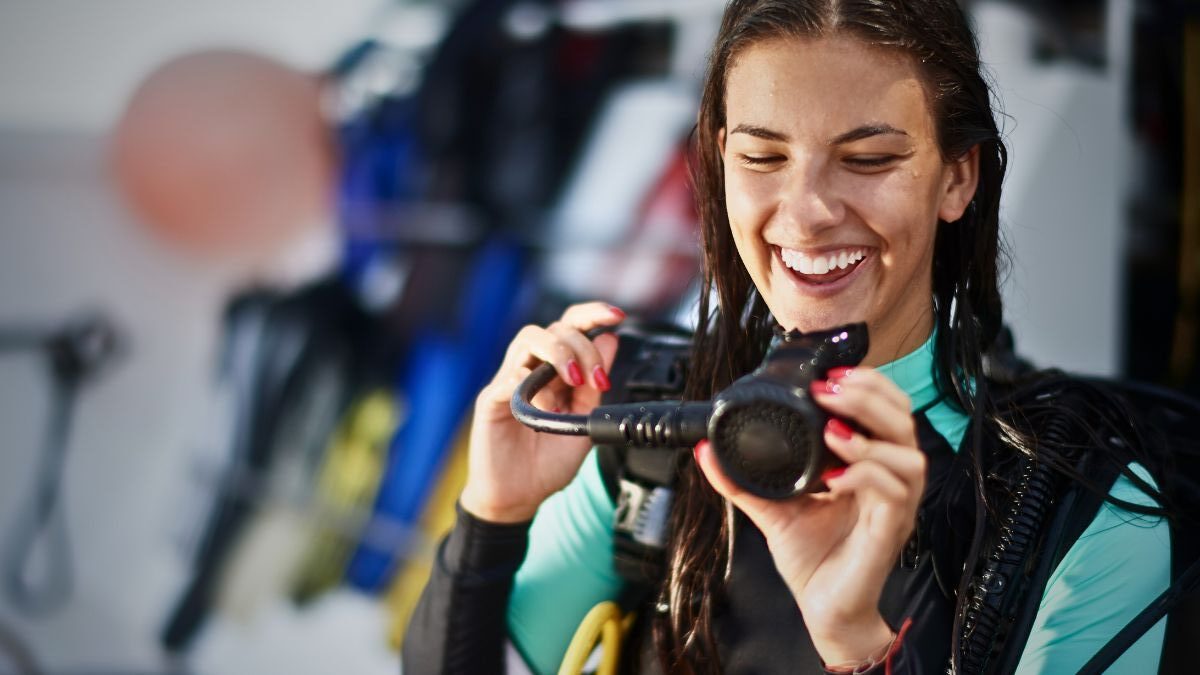
Can I Dive If I Wear Glasses?
Contact lens wearers can dive without issue.
For glasses wearers, you can purchase a prescription dive mask with corrective lenses ground into the glass, or you can wear contact lenses while diving.
What Happens If I Panic Underwater?
Your training includes techniques for managing anxiety, including stopping, breathing slowly, and signaling your buddy or instructor.
If you do panic, your instructor is trained to recognize the signs and will intervene immediately.
True panic is rare among students diving with instructors.
How Deep Will I Go During Training?
Your confined water pool sessions happen in 2 to 5 meters of water.
Your first open water certification dive typically reaches 10 to 12 meters maximum depth. Your final certification dives may go as deep as 15 to 18 meters.
After certification, Open Water Divers are qualified to dive to 18 meters (60 feet).
Do I Need to Be in Good Shape?
You need reasonable general health and enough fitness to swim several hundred meters and carry equipment short distances.
You don’t need to be athletic or particularly strong.
Diving is actually a low-impact activity. The water supports your weight, reducing strain on joints.
Can I Dive with Disabilities?
Many people with physical disabilities dive successfully.
The underwater environment’s weightlessness often allows freedom of movement not possible on land.
For standard Open Water certification, you must meet all course performance requirements without assistance.
However, adaptive scuba programs exist for individuals who need support or modified training approaches.
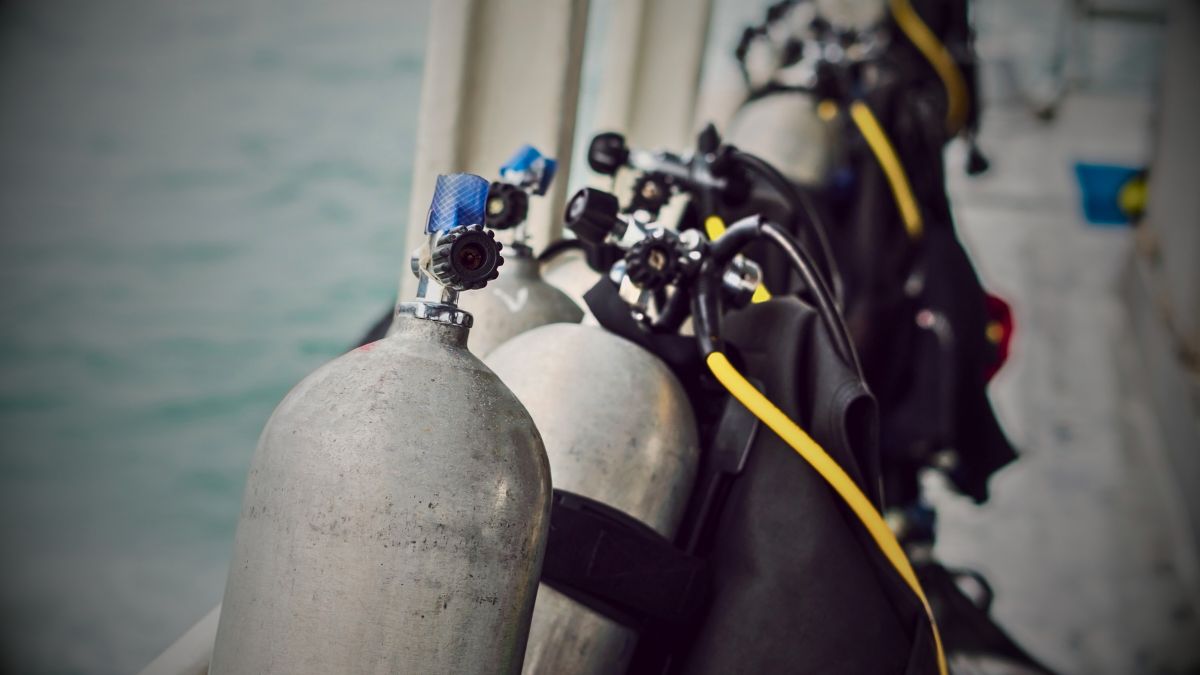
Is It Hard to Learn to Scuba Dive? Final Thoughts
Is it hard to learn to scuba dive? For most people, the answer is no.
The skills are manageable. The time investment is reasonable. The physical demands are moderate.
What makes diving feel difficult beforehand is the unknown.
Once you understand the process, practice the skills, and experience breathing underwater for the first time, the mystery evaporates.
I’ve taught software engineers, teachers, students, retirees, artists, and construction workers.
I’ve certified people who were nervous, skeptical, or outright scared at the beginning. The vast majority finish their course feeling accomplished and excited to dive again.
The rewards far outweigh the challenges.
Sources and References
This article is based on industry-standard scuba diving practices and training protocols. Key information references:
- PADI – Open Water Diver Course Standards
- Scuba Schools International (SSI) – Training Standards
- Divers Alert Network (DAN) – Diving Safety Statistics
- World Recreational Scuba Training Council – Medical Screening Guidelines
- Many years of diving experience as a diving instructor


